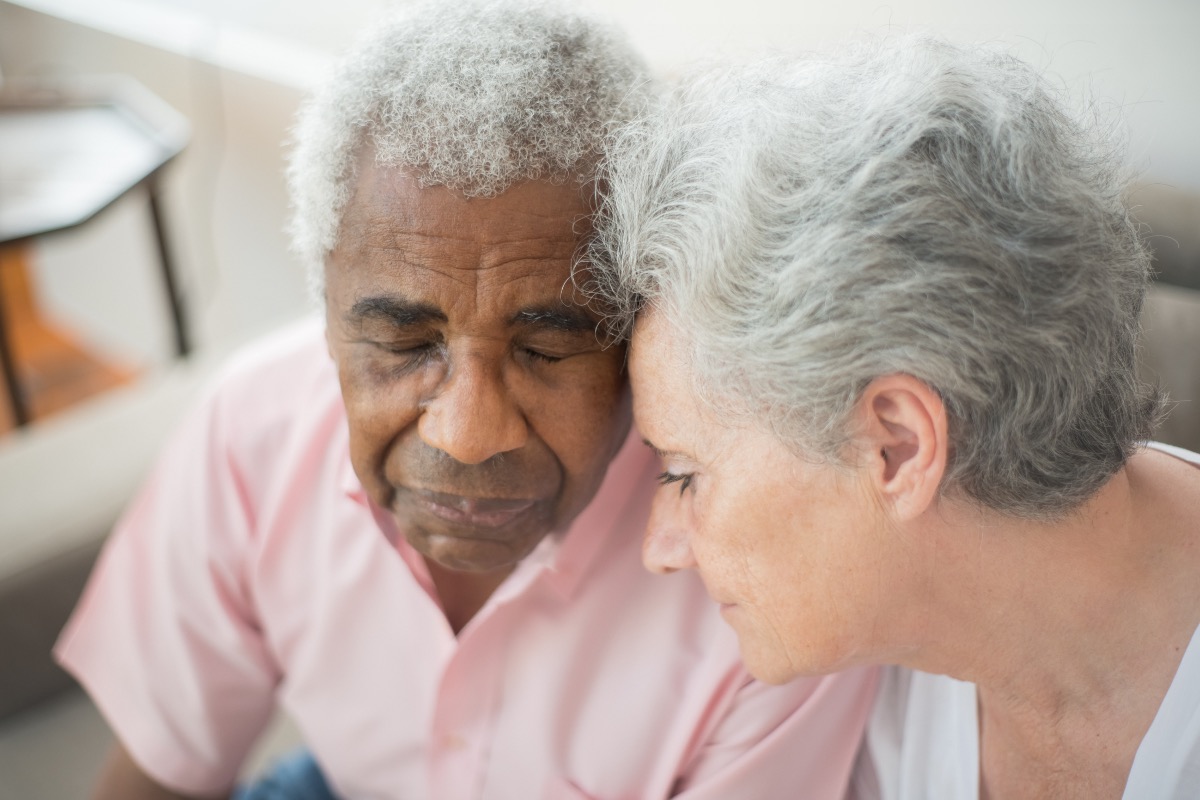
Despite grief and loss being inevitable experiences that we will all endure at some point in our lives, preparing for it does not make the experience any easier. Grief often brings complicated and overwhelming emotions to the surface and can lead a person to view life as unmanageable. Since grief can feel so all-encompassing, it is no shocker that many people will try to find quick ways to escape their emotions. One of these quick and often unhealthy coping strategies includes using alcohol and other drugs to self-medicate.
It is essential to shed light on the significant link between untreated grief and the development of addiction. Furthermore, it is imperative that individuals who have struggled with substance use in the past work to prevent future relapse by learning healthier ways of navigating grief when it occurs.
Grieving is complicated and messy.
When a person initially learns about a loss in their life, they rarely consider the adverse health effects they may experience as they begin their grieving process. For many people, grief can be both a positive and negative wake-up call about the reality of mortality. It can bring about feelings of extreme sadness, confusion and despair. Paradoxically, grief can also bring about feelings of more profound gratitude, compassion and mindfulness. However, the more positive aspects of grief usually do not come about until the grieving process is well underway.
There is no easy way to navigate grief. The reality of it is that it is incredibly complicated and can often be messy. Education can do wonders in making one’s grieving process more understandable, such as knowing that there is no timeline for grieving and learning how grief can occur in different stages. The five stages of grief include:
- Denial
- Anger
- Bargaining
- Depression
- Acceptance
Recognizing that there is no one-size-fits-all for grieving is an essential step in the healing process. As no one situation defines grief, there should be no one perfect way to navigate it.
Untreated grief is a risk factor for the development of addiction.
It is not surprising that untreated trauma, such as grief, is a risk factor for the development of addiction. The main reason for this is that many people do not know adequate, healthy coping mechanisms for their grief. What makes the experience of grief even more distressing is that it can interfere with an individual’s ability to function in daily life. Grief can cause sleep disturbances, interpersonal conflict and existential distress. Not only do many people lack the knowledge of appropriate ways of dealing with grief, but they also lack the knowledge of healthy ways of managing the debilitating symptoms that grief can cause.
As a result, many will turn to alcohol and other drugs in an attempt to self-medicate their thoughts, feelings and other symptoms surrounding their grief. Because alcohol is more readily available than other substances, alcohol use tends to be shared among grieving people. Regardless of the substance being used as a refuge, substance use can intensify experiences of grief and worsen symptoms altogether. This is because the body quickly identifies substance use as a crutch to numb distressing feelings or pain. With repeated substance use, the body will become dependent on the substance and, as a result, motivate substance-seeking and substance-using behaviors. In the same way, the brain will rely on substance use to produce any feeling of pleasure and reward, which begins the cycle of addiction.
With therapy, people can learn how to prevent substance use and addiction as they learn to navigate grief.
Often, people will not seek out healthy ways to cope with grief until they experience a devastating loss. Regardless of whether or not one thinks they are prepared for grief, one must become educated on healthy ways to navigate grief. Being proactive about dealing with grief and loss can help normalize the experience and prevent substance use and addiction from developing.
Treatment centers across the nation understand the significant link between trauma and grief and substance use and addiction. This is why many substance use treatment centers utilize trauma-informed care. This type of care is vital as it prioritizes constant attention, caring awareness and sensitivity for all clients as they work through their healing process.
One of the most important factors to consider when healing from grief is the quality of your support system networks and your access to them. Close relationships with family, friends and other loved ones are the most impactful component to successfully navigating grief and loss. Being isolated or disconnected can increase the risk of substance use and can worsen the symptoms of grief.
Connect with others through support groups, group therapy interventions or community interaction. These resources can help promote healing and prevent future substance use and relapse. Similarly, for those that have struggled with substance use in the past, it is imperative to engage with long-term continuing treatment resources to help sustain sobriety and encourage lifelong recovery.
Associated Behavioral Health Care is a mental health and addiction treatment facility that understands that grief can be traumatic. We have created a nonjudgmental, compassionate treatment facility that will allow you the time and space that you need to heal from your experiences of grief. As grief is not a process that anyone should experience alone, we can also connect you with support groups and other substance use prevention resources. Call us today at (844) 335-7384.
